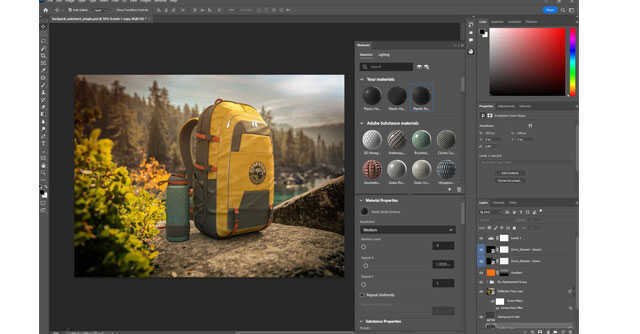
Adobe brings its metaverse creator tools to Meta’s Quest headsets


On Tuesday, October 18, Adobe announced the launch of a new set of tools for users to create “metaverse ready immersive experiences”. The new launch added products to Substance 3D, a portfolio of creator tools that is also the 3D equivalent of Adobe’s long-running and popular Creative Cloud suite of video and photo editing tools. In addition, the company signed a partnership with Meta to bring its Substance 3D suite to the Facebook parent’s Quest virtual reality platform.
In return, Meta will make Adobe’s tools available to its Quest users to let them build their own 3D content for use in Quest headsets.
Explaining the additions made to the metaverse-centric creative tools suite, Sebastien Deguy, vice-president and head of 3D and metaverse at Adobe, said that brand investments in metaverse and 3D content creation have “skyrocketed” in the past one year, as brands prepare for “transition to a new medium”.

Adobe also said that its partnership with Meta for the new Substance 3D suite is part of a “multi-year commitment” between the two brands, which will see present and future Adobe metaverse creativity tools being made accessible to users of Meta’s Quest 2 and Quest Pro virtual reality headsets.
Adobe said in a statement that its Substance 3D suite is already used by game publishers such as Electronic Arts, Microsoft and Ubisoft, and major global developers such as Epic Games and Nvidia, to “prototype and deploy early metaverse experiences”.
Nvidia, for instance, has its own suite of 3D immersive platforms under its ‘Omniverse’ label. The company is also working on bringing 3D visualization to automotive development platforms, as well as in immersive industrial designs.

Interestingly, the Adobe-Meta partnership comes amid questions on Meta failing to find takers for its Horizon Worlds metaverse. In a report earlier this week, The Wall Street Journal said that while Meta had set a target to amass half a million users of Horizon Worlds by the end of 2022, the figure only stands at around 200,000 — less than half of Meta’s target.
More worryingly, the report added that only about 9% of its users account for returning users to the virtual space, after the first month of signing up on the platform.
